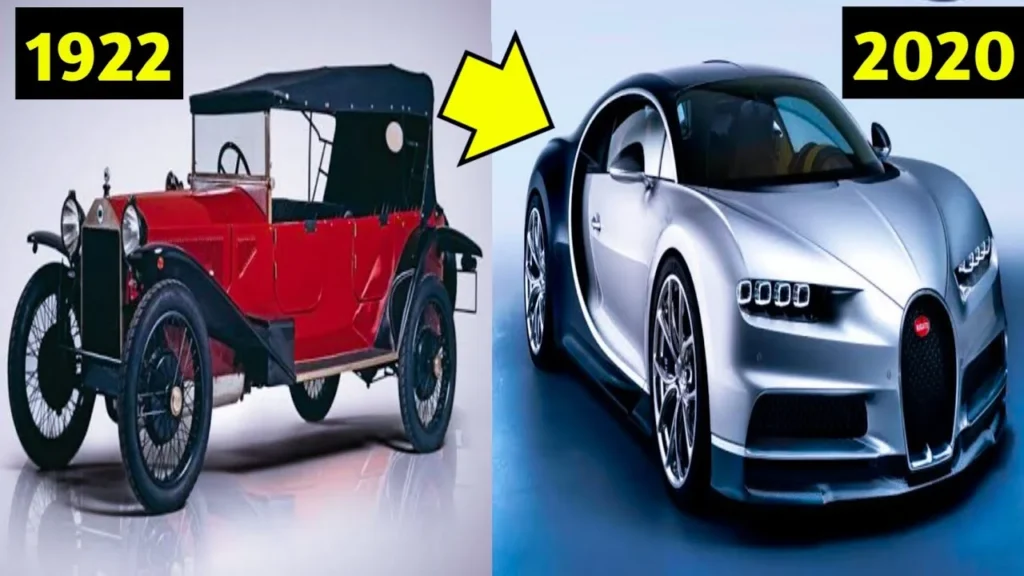The Evolution of Sports Cars: From Classic to Modern has been a fascinating journey that showcases the innovation and technological advancements in the automotive industry. Classic sports cars, with their iconic designs and powerful engines, have laid the foundation for the modern sports cars we see today. These classic cars, such as the Porsche 911 and the Chevrolet Corvette, have become timeless symbols of speed and luxury, setting the stage for the evolution of sports cars into the sleek, high-performance machines we know today. As technology has advanced, modern sports cars have incorporated cutting-edge features such as hybrid engines, advanced aerodynamics, and state-of-the-art infotainment systems, pushing the boundaries of what is possible in automotive design and performance. The Evolution of Sports Cars: From Classic to Modern is a testament to the enduring appeal of these vehicles and the relentless pursuit of excellence in the automotive industry.
The Early Days of Sports Cars
In the early 20th century, sports cars were primarily seen as high-performance vehicles designed for racing and spirited driving. These cars were often lightweight, with powerful engines and agile handling characteristics. They were also known for their sleek and aerodynamic designs, which helped them achieve high speeds on the race track. Some of the most iconic sports cars from this era include the Bugatti Type 35, Alfa Romeo 8C, and Mercedes-Benz SSK.
These early sports cars were a symbol of luxury and exclusivity, often associated with wealthy individuals and racing enthusiasts. They represented the thrill of speed and the excitement of competition, capturing the imagination of car enthusiasts around the world.
The Golden Age of Sports Cars
Following World War II, sports cars experienced a golden age of innovation and design. Legendary models such as the Jaguar E-Type, Porsche 911, and Chevrolet Corvette emerged during this period, showcasing groundbreaking technology and timeless styling. These cars became symbols of automotive excellence, combining speed, handling, and beauty in a way that captivated car enthusiasts.
The golden age of sports cars also saw the rise of iconic racing events such as the 24 Hours of Le Mans and the Mille Miglia, where manufacturers competed to prove the performance capabilities of their vehicles. This era solidified the reputation of sports cars as the ultimate expression of driving pleasure and engineering prowess.
Modern Advancements in Sports Car Technology
With advancements in technology, modern sports cars have become more powerful, efficient, and refined than ever before. The use of lightweight materials such as carbon fiber and aluminum has allowed for greater performance and fuel economy, while advanced aerodynamics and suspension systems have improved handling and stability at high speeds.
Furthermore, the integration of cutting-edge electronics and driver assistance systems has enhanced the driving experience, offering features such as launch control, adaptive damping, and customizable driving modes. These technological advancements have pushed the boundaries of what sports cars are capable of, making them more accessible and enjoyable for a wider range of drivers.
Evolution of Design in Sports Cars
The design of sports cars has evolved significantly over the years, with modern models showcasing a perfect blend of form and function. Sleek aerodynamics, aggressive styling, and attention to detail define the aesthetic of contemporary sports cars, reflecting both their high-performance capabilities and luxurious appeal.
Interior design has also seen notable improvements, with a focus on driver-centric layouts, premium materials, and advanced infotainment systems. Comfort and convenience are now key considerations in sports car design, ensuring that drivers can enjoy long journeys as much as spirited drives on the open road.
Sustainability and Sports Cars
In recent years, there has been a growing emphasis on sustainability in the automotive industry, and sports car manufacturers have been at the forefront of this shift. Hybrid and electric sports cars have become increasingly popular, offering impressive performance while minimizing environmental impact.
These eco-friendly sports cars demonstrate that sustainability and exhilarating driving experiences are not mutually exclusive. With advancements in battery technology and electric powertrains, the future of sports cars looks to be both thrilling and environmentally conscious.
The Enduring Allure of Classic Sports Cars
Despite the advancements in modern sports car technology, classic sports cars continue to hold a special place in the hearts of enthusiasts. The timeless designs, mechanical purity, and historical significance of classic sports cars make them highly sought after among collectors and connoisseurs.
Many classic sports cars have also proven to be wise investments, with values appreciating over time. Their scarcity and cultural significance ensure that they will always be revered as automotive icons, representing a bygone era of motoring passion and craftsmanship.
Iconic Sports Car Brands and Their Contributions
Several automotive brands have made indelible contributions to the evolution of sports cars. Companies like Ferrari, Porsche, Lamborghini, and Aston Martin have consistently pushed the boundaries of performance and design, creating some of the most revered sports cars in history.
Each of these iconic brands has its own unique approach to building sports cars, with a focus on heritage, innovation, and motorsport success. Their enduring legacies continue to shape the industry and inspire future generations of sports car enthusiasts.
The Future of Sports Cars: Trends and Innovations
Looking ahead, the future of sports cars is likely to be shaped by trends such as autonomous driving technology, connectivity, and further advancements in electric propulsion. These developments will undoubtedly influence the design, performance, and overall driving experience of sports cars in the years to come.
Additionally, the potential for alternative fuels, such as hydrogen, and advancements in materials science could open up new possibilities for sports car engineering. As the automotive industry continues to evolve, sports cars are poised to remain at the pinnacle of innovation and excitement, captivating enthusiasts with their relentless pursuit of performance and passion for driving.
The Evolution of Sports Cars: From Classic to Modern
| Classic Sports Cars | Modern Sports Cars |
|---|---|
| 1950s-1970s | 1980s-Present |
| Iconic models: Porsche 911, Chevrolet Corvette | Iconic models: Ferrari 488, Lamborghini Huracan |
| Manual transmissions | Automatic transmissions with paddle shifters |
| Raw driving experience | Advanced technology for performance and comfort |
| Simple, elegant design | Aerodynamic and aggressive design |
The evolution of sports cars has seen a transition from classic models of the 1950s-1970s, such as the Porsche 911 and Chevrolet Corvette, to modern models of the 1980s-present, such as the Ferrari 488 and Lamborghini Huracan. This evolution has brought about changes in transmission, driving experience, technology, and design, reflecting the advancements in the automotive industry.



